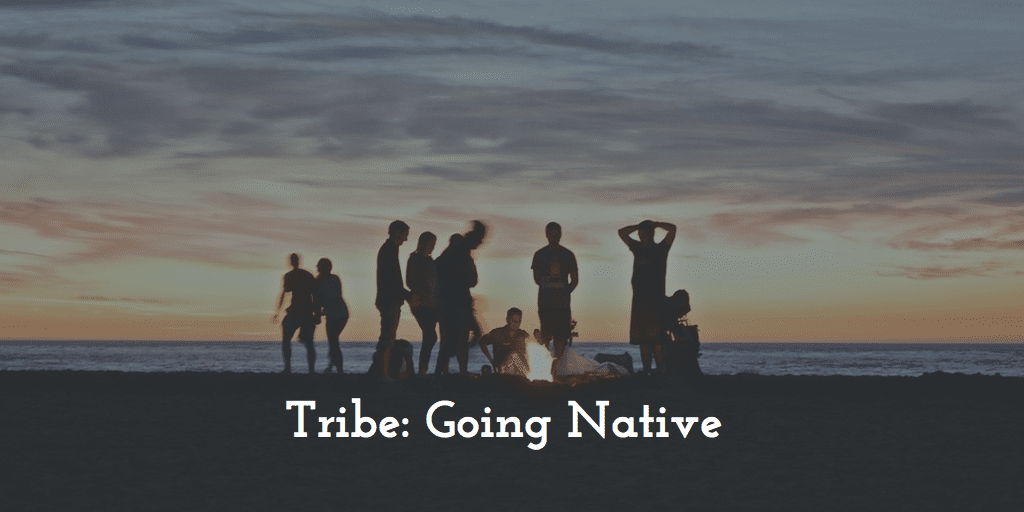 Tuesday I started a series reviewing the New York Times bestselling book Tribes by Michael Junger.
Tuesday I started a series reviewing the New York Times bestselling book Tribes by Michael Junger.
I started with a story about Junger meeting a homeless man who took care of him while he was out hitchhiking, and how that one act of generosity changed Junger’s life.
But what I found interesting was why Junger was out hitchhiking across America in the first place.
As a teenager, who grew up in a privileged family from Boston, he was living the quintessential suburban life. But something was missing. Here’s how he described it:
I’d grown up in a Boston suburb where people’s homes were set behind deep hedges or protected by huge yards and neighbors hardly knew each other. And they didn’t need to: nothing ever happened in my town that required anything close to a collective effort. Anything bad that happened was taken care of by the police or the fire department….The sheer predictability of life in an American suburb left me hoping—somewhat irresponsibly—for a hurricane or a tornado or something that would require us to all band together to survive. Something that would make us feel like a tribe.What I wanted wasn’t destruction and mayhem but the opposite: solidarity.I wanted the chance to prove my worth to my community and my peers, but I lived in a time and a place where nothing dangerous ever really happened. Surely this was new in the human experience, I thought. How do you become an adult in a society that doesn’t ask for sacrifice? How do you become a man in a world that doesn’t require courage?
I’ve read that paragraph a dozen times.
How do you become an adult in a society that doesn’t ask for sacrifice? How can we in our modern world that is drowning in loneliness experience solidarity with others?
One of the most fascinating parts of the book to me was Junger’s description of the first few decades of American history.
When the Europeans began to colonize America, they were constantly at war with a lot of different kinds of tribes of Native Americans. A war that they were winning easily. The Native Americans way of life hadn’t changed for thousands of years, and so the Europeans had much superior technology and fire power to fight with.
But the most shocking thing to the new colonists was that despite their military superiority, people from the colonies were constantly defecting to live with the Native Americans (Junger calls them Indians for reasons he describes in the book).
In what I’m calling the Dancing with Wolves problem, the colonists were befuddled by the sheer amount of people who were leaving their colonies of advanced technology and freedoms to go live with a people whose language they did not speak, and who’s culture was entirely foreign to them.
These were people who were born in England, they aren’t restless pioneers, they are in the words of Junger “the sons and daughters of Europe” who are leaving not just their colony but Western civilization.
Here’s how he says it:
It may say something about human nature that a surprising number of Americans—mostly men—wound up joining Indian society rather than staying in their own. They emulated Indians, married them, were adopted by them, and on some occasions even fought alongside them. And the opposite almost never happened: Indians almost never ran away to join white society. Emigration always seemed to go from the civilized to the tribal, and it left Western thinkers flummoxed about how to explain such an apparent rejection of their society. “When an Indian child has been brought up among us, taught our language and habituated to our customs,”
Benjamin Franklin wrote to a friend in 1753, “[yet] if he goes to see his relations and make one Indian ramble with them, there is no persuading him ever to return.” On the other hand, Franklin continued, white captives who were liberated from the Indians were almost impossible to keep at home: “Tho’ ransomed by their friends, and treated with all imaginable tenderness to prevail with them to stay among the English, yet in a short time they become disgusted with our manner of life… and take the first good opportunity of escaping again into the woods.”
They become disgusted with our manner of life and take their first good opportunity of escaping into the woods again.
If this doesn’t make you think than you’re not paying attention to the world…or at least you live in a different world than I do.
I live in a world with all the freedom I could want.
In theory, I can do whatever I want to do today, I don’t have to write this, I don’t have to keep my job, or stay in my family. I can leave it all behind and nobody could make me do anything about it.
I don’t have to go to that funeral or wedding, or serve on that board, or take the casserole to that couples home who had a miscarriage.
I don’t have to do any of that, and as it turns out they don’t have to do that for me either.
In a non-tribal society, there’s not the expectations or pressure to take responsibility for each other. You’re free to abandon and leave or ignore each other.
And we are incredibly lonely, depressed, sad and anxious.
Thomas Payne was one of the principle architects of what became American Democracy and he wrote in 1795:
“Whether… civilization has most promoted or most injured the general happiness of man is a question that may be strongly contested, [Both] the most affluent and the most miserable of the human race are to be found in the countries that are called civilized.”
Hundreds of years ago…from the very founding of this country as we know it, American’s have had a problem with being able to describe and pursue what a good life really looks like.
Junger says that the question we should be asking isn’t why is tribal life so attractive, but what about the Western way of life is so unappealing?
The rest of the book is his answer to that question.










